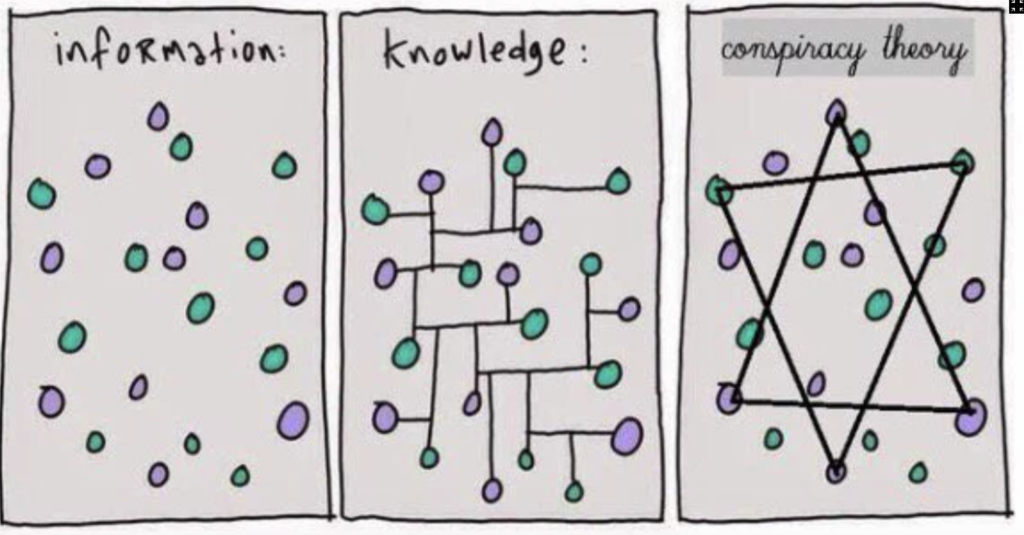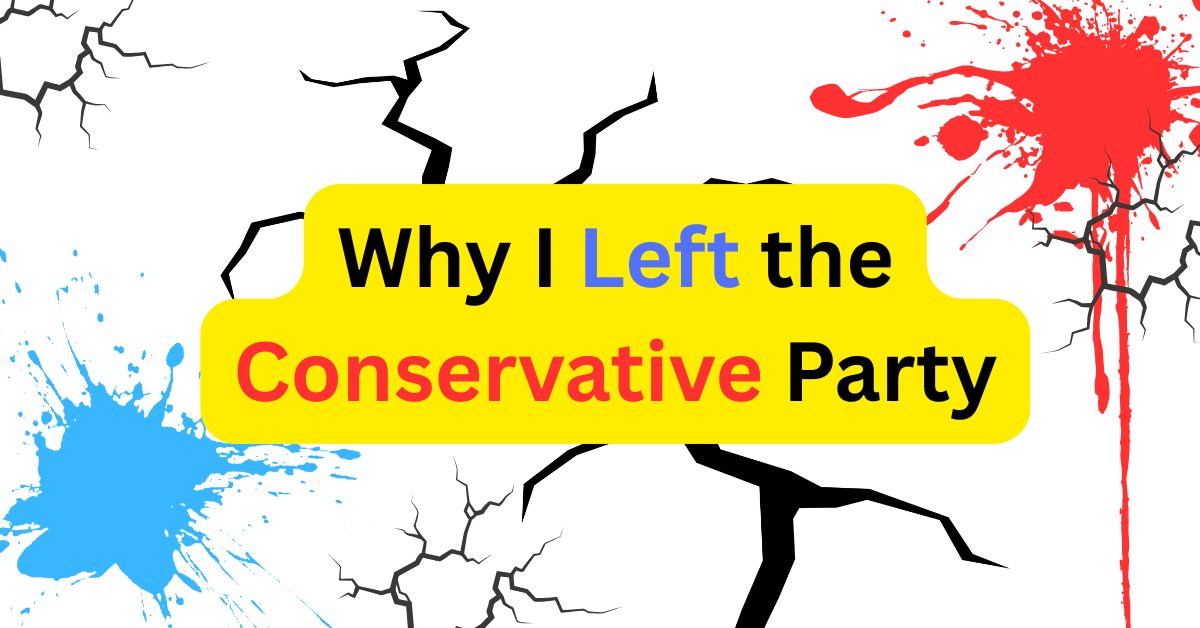Understanding the appeal of conspiracy theories requires an examination of the human psyche. As inherently flawed beings, individuals are susceptible to the uncertainties and cognitive challenges that accompany free will. The mental stagnation, torpor, that often results has, in popular culture, been referred to as “brain rot”—a term that, while informal, captures the essence of the phenomenon. While more academic terminology may be preferable, there are moments when direct language is necessary. Previous writings on epistemological functions explore these ideas in greater depth and are available for further reading here.
Fallacies
Conspiracy theories and fallacies in logic are no modern machination; they have been around since the dawn of mankind. Our departure from the old ways comes in the form of just how much technology has advanced in the past 200 years. From the printing press to the cell phone, we are spreading information, and misinformation, at alarming rates and with it, conspiracy theories and flaws in logic. On the surface, conspiracy theories may seem like fun and games, but they leave this kind of vacuity where critical thinking ceases to exist. I have beaten this horse a lot lately, so I will leave my readers to explore my writings in order to further their aptitude on the subject. I read a great quote several months ago and, please forgive me, I have no idea where it came from: “The denial of atrocity is the atrocity.” (If you know where this script originated from, please leave a comment down below so I may give it a proper citation.)
Nero’s Fire
In 64 AD, a massive fire engulfed the city of Rome, leaving about 71% of the city destroyed. Throughout history, and even in primary sources, the origins of the Great Fire have been the subject of many conspiracy theories. Nero, one of Rome’s notoriously awful emperors (he had his mother killed and forced Seneca to commit suicide), became the instant target of the conspiracy theory. Nero used the Great Fire as a stepping stone to begin the persecution of the Christians. Nero’s involvement in the fire has been subject to great historical debate, and indeed both sides of the coin offer compelling arguments. From an objective standpoint, we cannot confirm that the fire was started by Nero- but it makes for one great conspiracy, doesn’t it?
On the reverse, Nero significantly helped in the aftermath of the fire, both in policy and manpower.
We Make Patterns

Looking back at my previous paragraph, do you notice anything? I connected the Great Fire with the fact that it led to the persecution of the Christians. Most conspiracy theories have their genesis in connecting dots to factual realities. This is a major fallacy because we are making convenient patterns and filling in gaps with speculation rather than evidence. The human brain is wired for pattern recognition—an evolutionary advantage that helps us make sense of the world. But when this instinct runs unchecked, it leads to seeing intentional design where none exists.
The Great Reset
During my research for this post, I wanted to find a popular conspiracy that I had never heard of previously. It didn’t take long… The Great Rest theory emerged from a real event: the World Economic Forum (WEF) proposed a post-pandemic economic recovery plan called “The Great Reset” in 2020. The WEF’s stated goal was to rethink capitalism to make it more sustainable and equitable. However, conspiracy theorists took this concept and spun it into a narrative that global elites were using COVID-19 as a pretext to establish a new world order, strip away personal freedoms, and control the global economy.
The theory gained traction because it connected real elements—the WEF, world leaders discussing economic policy, and the pandemic—to a speculative and sinister agenda. It played into existing fears about globalization, government overreach, and economic instability, making it an emotionally compelling story, even without solid evidence. Fear is an insanely powerful driver of human emotion and action.
Like ancient Rome’s Great Fire in 64 AD, the Great Reset conspiracy takes real events and weaves them into a pattern that confirms people’s suspicions about power and control.
Why Does This Happen?
We selectively choose what we want to believe because humans reject the notion that they are wrong. This is where confirmation bias comes in- a powerful psychological tendency that drives people to seek out, interpret, and remember information in a way that confirms their preexisting beliefs while ignoring contradictory evidence. Of course, idiocy is a relative state and the beholder is blind to it.
Once someone buys into a conspiracy theory, their brain actively filters out anything that challenges it. Instead of evaluating information objectively, they gravitate toward sources that reinforce their viewpoint, dismissing counterarguments as misinformation or part of the conspiracy itself. This creates an echo chamber, where every new “dot” seems to connect to the same convenient narrative. (See the above image that I included for a good visual of this.)
Going back to our ancient example- the belief that Nero started the Great Fire of Rome. If you were already suspicious of his rule then blaming him for the fire feels logical. Any evidence to the contrary (such as his relief efforts following the disaster) would be downplayed or ignored.
The same dynamic plays out in modern times. If someone believes that a shadowy group is controlling global events, they will unconsciously cherry-pick any data that supports this idea.
Ultimately, conspiracy theories persist not because they reveal hidden truths, but because they satisfy the deep-seated human desire for certainty. In a world fraught with ambiguity, a compelling fiction often feels more reassuring than an unpredictable reality. Perhaps one day, definitive evidence will emerge proving that Nero did start the fire—but until then, the allure of speculation will continue to shape how history is understood and retold. In the meantime, I implore my readers to challenge a deep-seated notion of theirs and to put that thought “on trial.” While it may feel comfortable to be right in your own mind; that does not change the reality of how the world truly works.





Leave a Reply